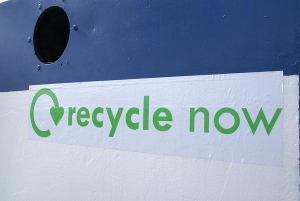
TerraCycle turns used drink pouches into new products like pencil cases and backpacks
Think recycling only means paper, plastic and aluminum?
There’s a new program that recycles drink pouches your kids take to school.
In 2007, TerraCycle – a company founded on nothing being wasted and everything reused – created the Drink Pouch Brigade program, a free, nationwide program that “upcycles” used drink pouches, turning them into something new.
TerraCycle has pioneered programs that take items like white plastic bags, used soda bottles and food wrappers, and turns them into grassroots ventures that reduce waste and create fundraising opportunities.
The Container Recycling Institute (CRI) says over 5 billion drink pouches are produced each year. Non-recyclable, practically all end up in landfills.
Honest Tea Inc.– a company that makes organic juices and teas, including their “Honest Kids” drinks in pouches – teamed with TerraCycle to creatively change those statistics, launching the Drink Pouch Brigade in 2007.
“This is great example of a model for change,” said Seth Goldman, Honest Tea’s CEO. “We only really have an impact,” he said, “when we can create scale.”
The Drink Pouch Brigade filled its first 100 “slots” within 24 hours!
When Capri Sun came onboard in 2008, 500 people had signed up. Today, says Albe Zacks, Vice President, Media Relations, “we’re (at) around 17,000 people / locations,” who credits the support and marketing efforts of Capri Sun.
To create a Brigade, go to TerraCycle’s website, enter your information and activate the account. TerraCycle will send pre-paid UPS shipping labels to send drink pouches back to their factory.
“We made it easy,” said Zacks.
Anyone within the continental U.S. can start a Brigade – offices, families, individuals. Collect used pouches, then, using your own packaging, use the shipping labels to return them to TerraCycle.
The program’s sponsors – Capri Sun, Honest Tea and TerraCycle – make a 2 cent donation for each returned pouch. You can donate to non-profits with a tax ID number, including schools (private and charters), community groups, even houses of worship.
Between 80 to 85 percent of participants are schools, said Zacks, though individuals can run brigades from home.
As of March, $100,000 had been donated, over $27,000 going to schools and local communities.
In 2008, the Drink Pouch Brigade “rescued” and reused over 40 million pre and post consumer pouches, around 1 million of them used drink pouches. As a marker of the program’s growth, Zacks says they’ll collect 1 million post-consumer drink pouches this month!
TerraCycle turns these into pencil cases, reusable tote bags, homework folders, backpacks and lunch boxes, available at Target, Walgreens and ShopKo. They also create tote bags and purses for Moms.
“Here’s a program,” says Vinay Sharma, Capri Sun’s Director of Marketing for Kids Ready-to-Drink Beverages, “that makes it easy for schools and easy for Moms to directly impact the environment.”
The program’s sponsors are committed to being green. TerraCycle partners with non-profit Zerofootprint to offset all their carbon emissions. Capri Sun is constantly working to reduce their carbon footprint. “As a responsible business, that’s something that’s important to us,” Sharma said. Honest Tea is switching their current plastic bottles to one that’s 22 percent lighter, which, Goldman says, will save around 1 million pounds of petroleum based resin.
The Brigades are a great way to get kids involved. And, Zacks says, Drink Pouch Brigades “are easy to run, never cost a dime and there’s no risk involved in signing up.”
Go to www.terracycle.net/brigades to get started.
Filed under: Making a Difference | Tagged: carbon footprint, environment, green, landfills, organic, recyclable, recycling | Leave a comment »









 using Symphony´s d2w additive for two of its products, Takis and Ricolino, which are sold in Mexico. Laurier said Barcel plans to change all its packaging to oxo-biodegradable which, according to Daniel Servitje Montull, Bimbo´s managing director, will take until the end of 2010 to complete.
using Symphony´s d2w additive for two of its products, Takis and Ricolino, which are sold in Mexico. Laurier said Barcel plans to change all its packaging to oxo-biodegradable which, according to Daniel Servitje Montull, Bimbo´s managing director, will take until the end of 2010 to complete.

